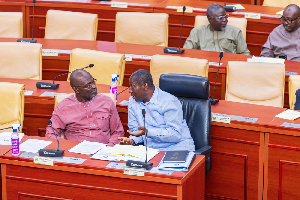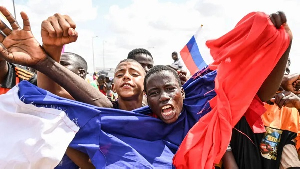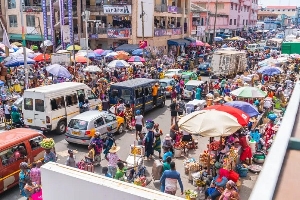William So, a Chinese business man, has initiated the process to invest in soybean production in the Northern region.
For a start, Mr. So will provide resources and engage the Chinese University of Hong Kong to partner with the University of Ghana for technology transfer to develop about 10 varieties of soybean adaptable to the local climate.
Mr. So, who is the Managing Director of PowerHouse Global Limited, a telecom resources infrastructure company based in Hong Kong, said the beans to be produced would be sold to local Ghanaian farmers.
“Other value-chain opportunities will also be explored,” he said. He disclosed this at a meeting with officials of the Savanna Accelerated Development Authority (SADA) in Tamale on Friday when he paid a fact-finding visit to the region to acquaint himself with the operations.
Mr. So’s interest in the sector was facilitated by Dr. Ekwow Spio-Garbrah, Head of the Dominion University College in Accra, when they met in London about two years ago.
Dr. Spio-Garbrah also accompanied Mr. So when he visited SADA officials, whose main job is to facilitate investment to the savannah regions of the country, to bridge the development gap between the southern and northern parts including parts of Brong Ahafo and Volta.
SADA assembled a team of public and private sector stakeholders in agriculture and soybean production to brief Mr. So about how the soybean sector was performing.
Mr. So and his delegation earlier met with Moses Bukari Mabengba, Northern Regional Minister at his residence to brief him about their mission in the region.
Mr. So said he was looking at investing about one million dollars into the project.
Statistics by the Northern Region Office of the Ministry of Food and Agriculture showed that soybean production in the region increased from 36,000 tonnes in 2007 to 119,000 tonnes in 2011, with demand always outstripping supply.
Soy oil, soy cake and soy milk are some of the products derived from soybean. Mr. So said he chose to invest in Ghana because of her favourable economic climate.
He was later taken round some of the fields at Buipe by SADA officials, who were led by its Chief Executive, Dr Gilbert Iddi.
Dr. Iddi assured that SADA was ready to provide assistance to ensure the success of the project.
Business News of Tuesday, 29 May 2012
Source: Daily Guide












